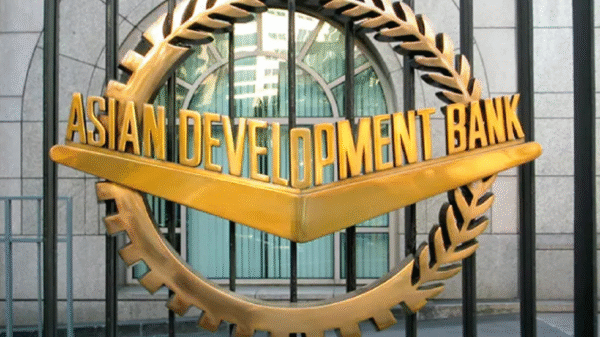


The Asian Development Bank (ADB) is set to allocate approximately $2.5 billion in project financing for Bangladesh in the coming calendar year (2026), as part of its ongoing efforts to deepen its partnership with the country.
An official from the Ministry of Finance told BSS, “The ADB is expected to contribute around $2.5 billion to support at least 10 development projects next year.”
The funding plan has almost been finalised following ADB’s recent Country Programming Mission (CPM) for 2026. In addition to the main projects, a standby fund will be kept in reserve to address any emergencies or additional priorities that may arise beyond the 10 projects.
“The ADB completed its CPM last week and held a wrap-up meeting with the Economic Relations Division (ERD). It has assured Bangladesh of $2.5 billion in funds for several development projects in 2026,” an ERD official said.
The CPM, an annual report, outlines the ADB’s planned lending and grants for Bangladesh for both single and multi-year periods, such as the 2023-2025 lending pipeline.
The ADB has identified five key priority areas for investment: climate-resilient development, energy efficiency, public-private partnerships (PPPs), social protection, and supporting structural reforms aimed at boosting economic growth and private-sector development.
According to the official, ADB’s ongoing operations in Bangladesh focus on infrastructure, energy, water resources, health, education, and climate-related issues, with particular emphasis on regional connectivity and corridor development.
Future ADB support will focus on job creation, poverty alleviation, regional integration, digitisation of the health sector, skills development, capacity building, water resource management, and river restoration.
Additionally, the ADB is expected to assist Bangladesh in ensuring a smooth transition from Least Developed Country (LDC) status.
The ERD official further revealed that apart from the CPM, a Tripartite Portfolio Review Meeting (TPRM) was also held recently, which assessed the progress of 15 ongoing ADB-funded projects in the country.
The TPRM found improvements in the project tendering process and noted that concerned agencies are now making thorough preparations before signing financing agreements for various projects.
“We’re focusing more on project readiness and identifying time-consuming areas to speed up implementation,” said the official, adding that project directors’ skills are being enhanced, and project steering and implementation committees are being streamlined.
The ADB is also conducting a study, at the government’s request, on the Teknaf to Tetulia corridor to improve existing infrastructure and promote the development of growth centres along this route.
Furthermore, the ADB has proposed the issuance of Taka-denominated bonds, and discussions are underway with relevant agencies.
So far this year, the government has signed 8 project agreements with the ADB, worth $1.8 billion, with approximately $900 million earmarked for budget support.
As Bangladesh prepares to graduate from its LDC status in 2026, the ADB is focusing on transition support, regional integration, export diversification, boosting productivity through skilled manpower, and infrastructure development.
Under the proposed financing plan for 2026, the ADB is expected to provide $300 million for the second phase of the Dhaka-Sylhet 4-lane road development project under the SASEC initiative, $115.8 million for the Narayanganj Green and Resilient Urban Development Project, and $200 million for the Sustainable Energy Development and Empowering Communities in the Chittagong Hill Tracts Project.
An ADB official explained that the 2026 portfolio for Bangladesh is an interim arrangement, as the country currently lacks a long-term development plan like the five-year plan.
The ADB usually provides financial assistance to Bangladesh under its Country Partnership Strategy (CPS). The current CPS (2021-2025) will conclude in 2025. Discussions are planned to determine priorities for the next CPS.
The official also noted that private sector involvement will increase in the coming years as the country nears its LDC graduation.
According to ERD data, the ADB, Bangladesh’s second-largest multilateral development partner, provided $2.52 billion in FY2024-25 and committed to $2.0 billion in assistance. ADB’s current portfolio in Bangladesh stands at around $11.8 billion across 51 ongoing projects.
Since 1973, the ADB has supported Bangladesh in sectors such as power, energy, transport, education, agriculture, health, water resources, and governance, contributing a total of $33.95 billion in loans and $571.2 million in grants.